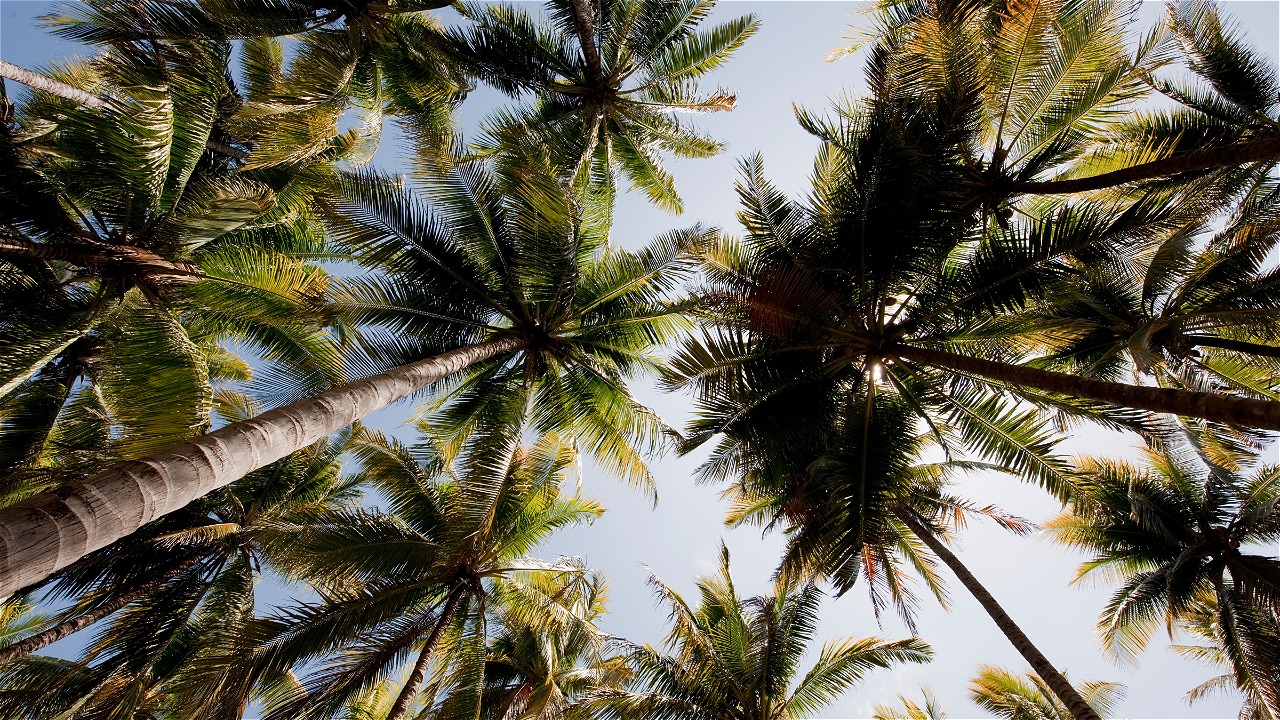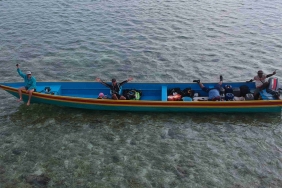IDENTIFICATION OF CRITICAL HABITATS TO SUPPORT SHARK MANAGEMENT IN ADONARA AND WAKATOBI NPS
Ranny Ramadhani Yuneni (Shark & Rays Bycatch Officer, WWF-Indonesia)
In relation to the marine species protection program, WWF-Indonesia is currently focusing on conducting research in several Indonesian waters where sharks are allegedly found. In October-November 2015, WWF-Indonesia with its partners, has conducted surveys in two dive sites that have different characteristics, namely the waters around Mekko Hamlet, East Flores Regency, East Nusa Tenggara; and Wakatobi National Park (TN), Southeast Sulawesi.
Meko Hamlet, located in Pledo Village, Witihama District, Adonara Island, is one of the important shark habitat locations encouraged in the East Flores Regional Marine Protected Area (MPA) Management and Zoning Plan. Previously, in January 2015, WWF-Indonesia had conducted preliminary mapping in these waters regarding the location of several types of sharks that were caught accidentally (bycatch). The mapping focused on information obtained from local fishermen who have more than 5-10 years of experience. More than 60% of fishers stated that over a five-year period, shark catches in waters north of Meko had declined. The results of this initial mapping served as a reference in determining the points that became the dive sites for the shark ecological survey this time.
The shark survey in Mekko Waters is a collaboration between WWF-Indonesia and the East Flores Regency Marine and Fisheries Service, and is also supported by the Alor Regency Marine and Fisheries Service. At least, the team collected data in more than 19,189 km long area. Encountering sharks in the waters of Mekko Hamlet is not uncommon. At least 14 individuals were found in one dive in the hotspot zone. The estimated size of sharks found is around 80-110 cm for the Blackfin Shark (Carcharhinus limbatus), and 100-120 cm for the Whitefin Shark (Triaenodon obesus). But even so, this location is still signaled as an area of target or bycatch shark fishing activity.
In contrast to Mekko's waters, which are more flat and have little slope, the contours of Wakatobi National Park waters are more wall and slope. Sharks were found more in the indentations of coral caves and passed through deeper water than the dive team surveyed. There are different types of sharks in these waters, where locations such as Wangi-Wangi Island, Kaledupa, and Tomia, more Blackfin Sharks are found; while dive sites to the east such as Kentiolo, Ndaa, and Cowo-Cowo more Whitefin Sharks are found.
It is still known that there is a threat of shark bycatch in the waters of Wakatobi National Park, because it is alleged that around 86% of fishermen in Wakatobi do not know the regulations regarding the prohibition of shark fishing, either intentionally or unintentionally, in this location.
The shark survey in Wakatobi National Park, which was conducted together with the Wakatobi National Park Office and local dive operators, focused on 24 dive points. According to WWF-Indonesia's data from 2014, these dive spots are allegedly the locations where sharks are often found. During this survey, the team found around 17 individuals of Blackfin Sharks, as well as four individuals of Whitefin Sharks with an estimated size of up to 150 cm. This estimated body size indicates that the shark is already an adult. When fully grown, the body size of an individual shark - both male and female - can reach 105-120 cm.
The results of these shark surveys in Meko waters and Wakatobi NP will be utilized to support sustainable shark management efforts in both waters. Locations that have been identified as shark sites will be proposed as shark protection areas, where management efforts can be carried out synergistically with the fisheries utilization zones in each location.
Such management will also provide benefits to local communities. The presence of sharks as apex predators will balance the ecosystem so that it can be maintained for now and the future. With the maintenance of this ecosystem, the community can utilize it for the development of marine tourism in their respective locations, which of course must also be considered regarding the shark diving code of ethics. The code of conduct includes maintaining a safe distance when interacting with sharks, not touching sharks, and not feeding sharks. This will keep sharks from changing their behavior (habituation) and continue to swim freely and safely in their natural habitat.





